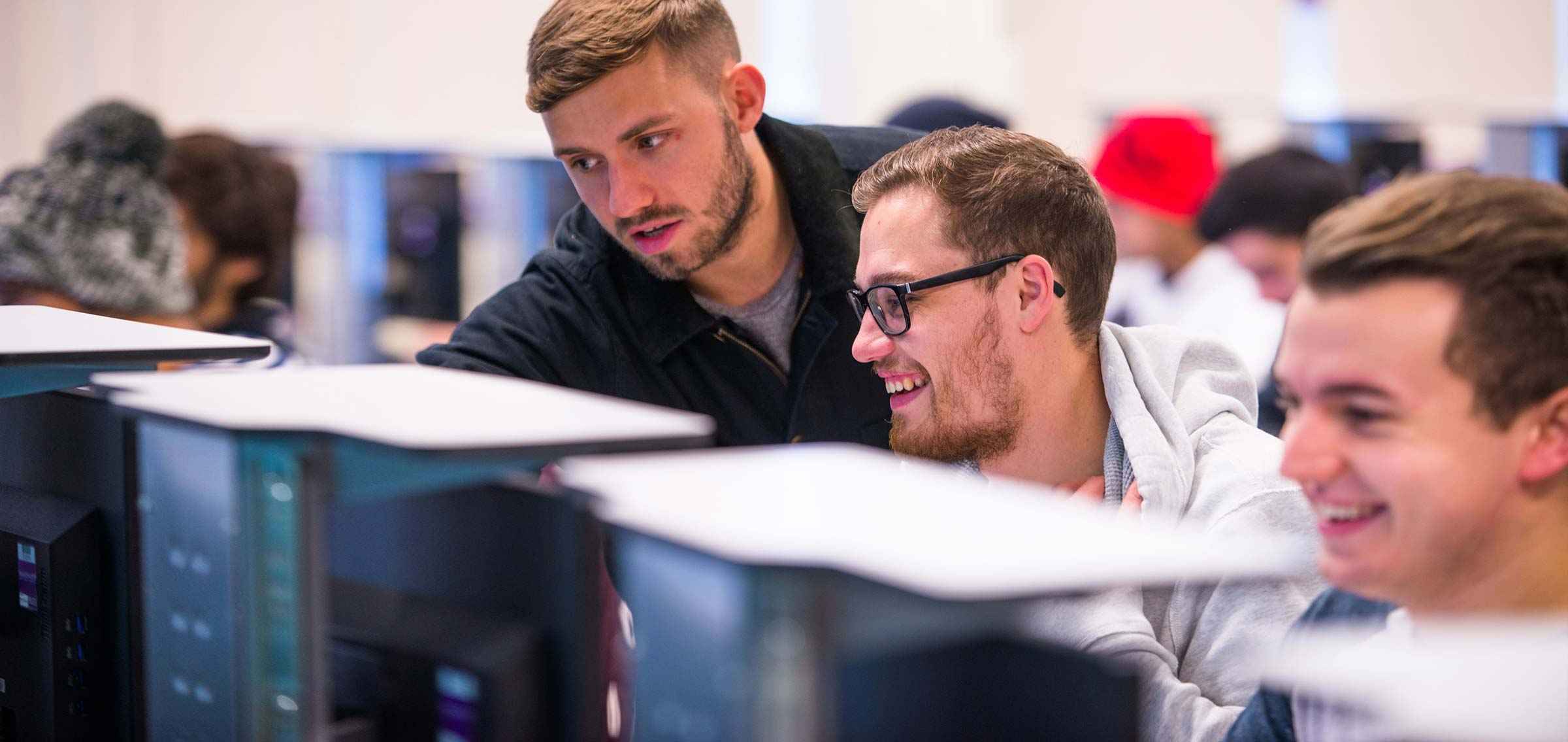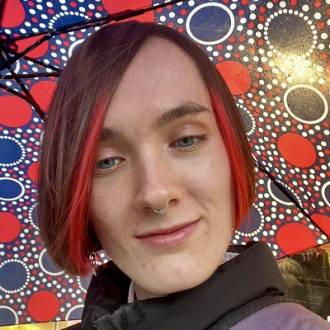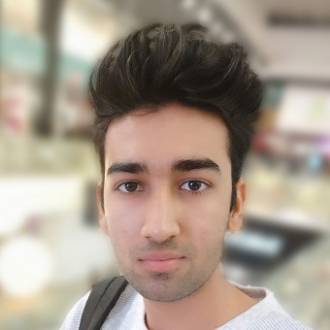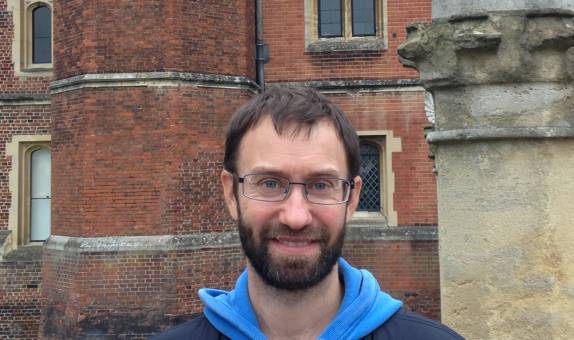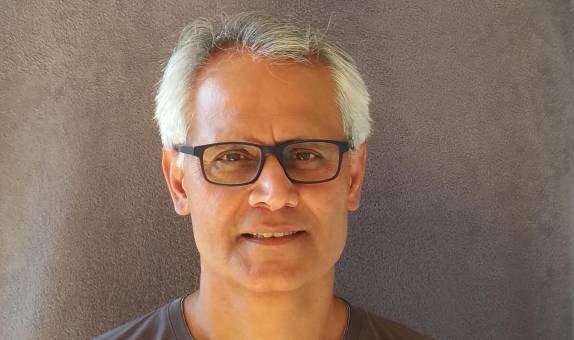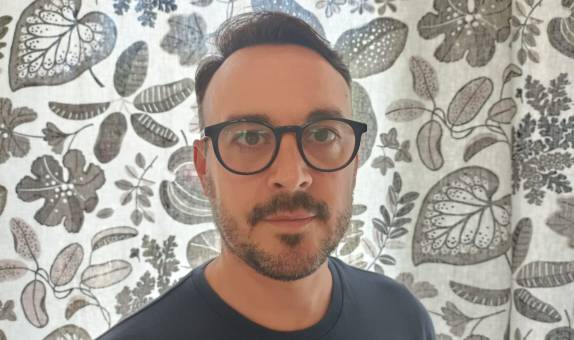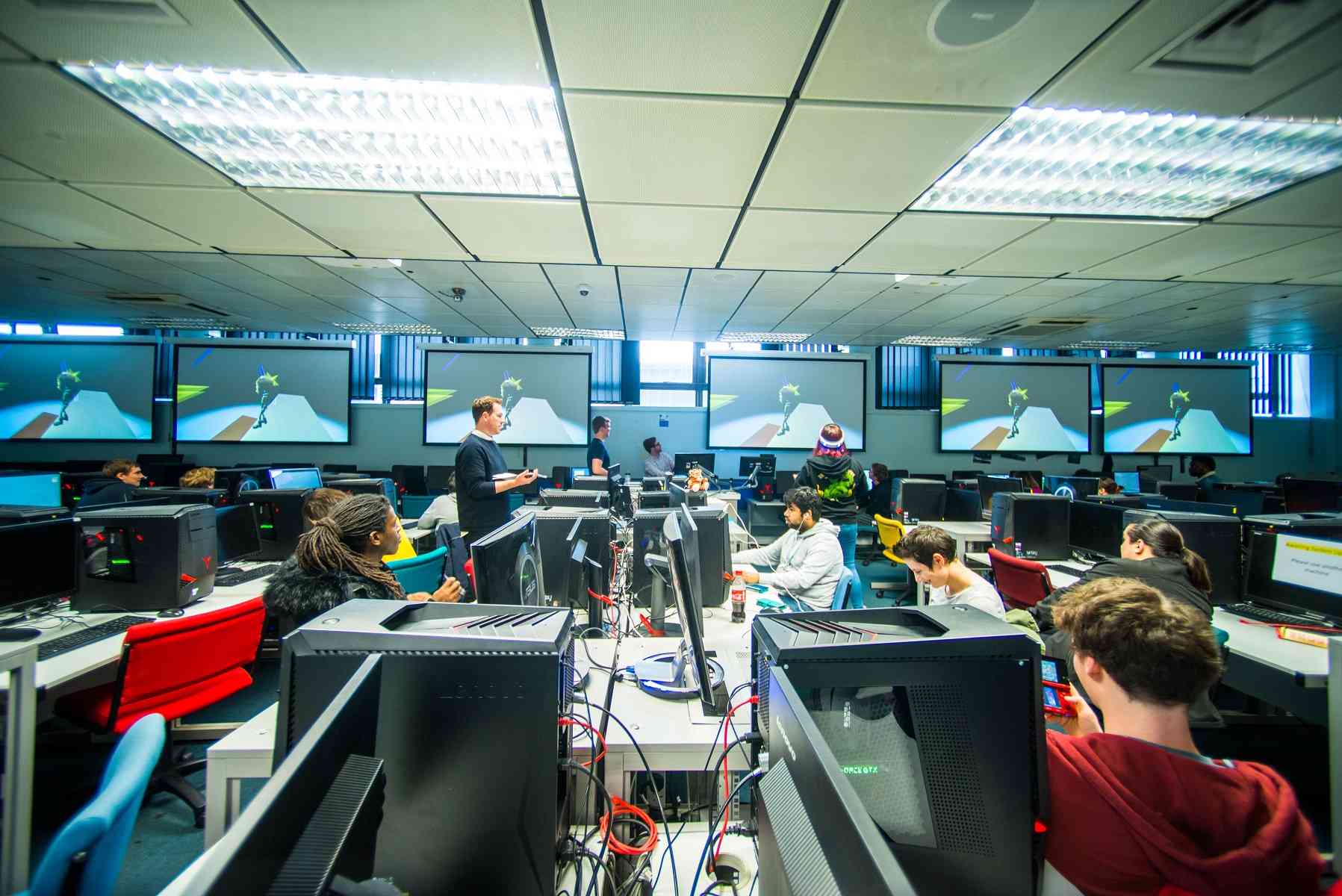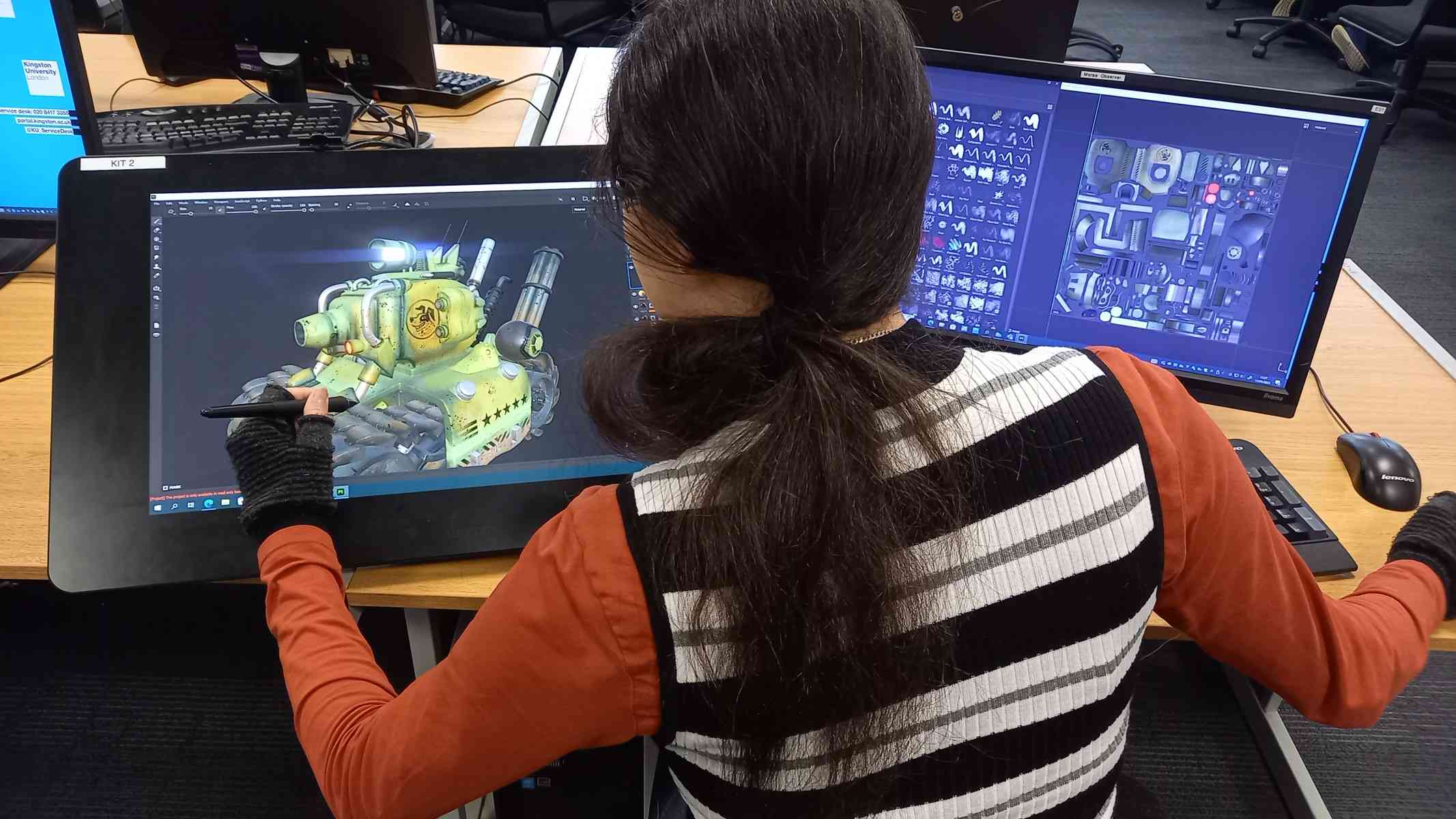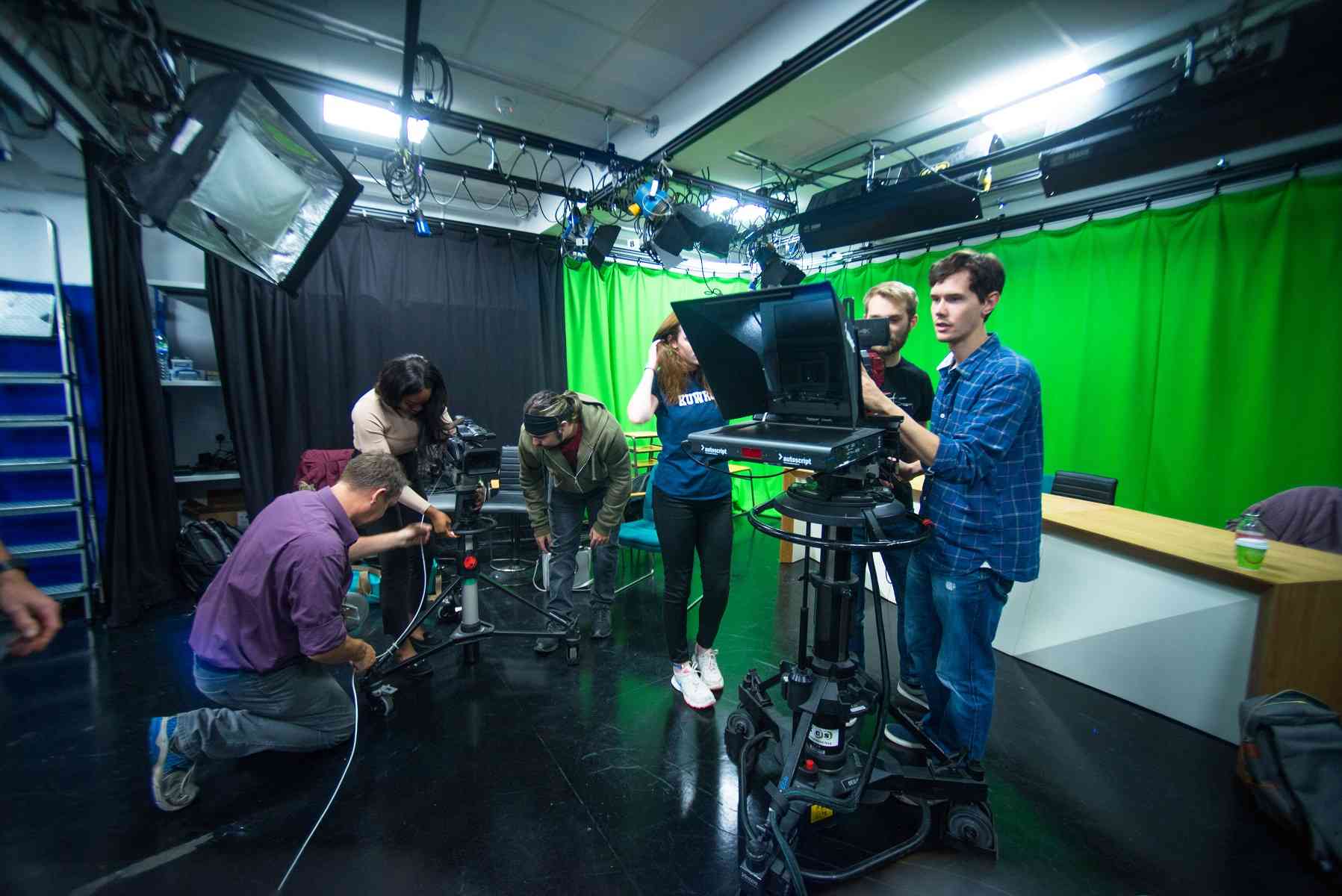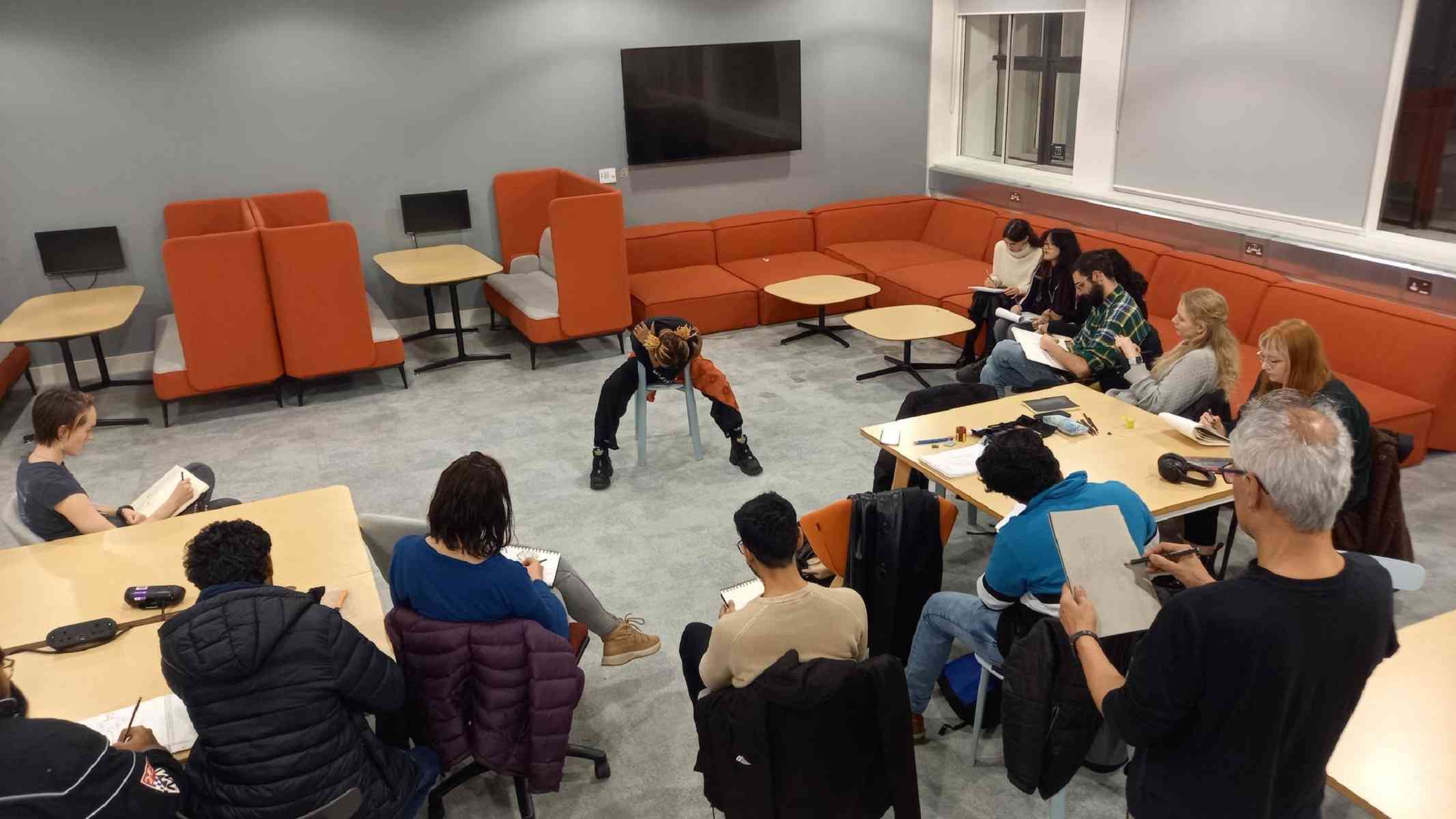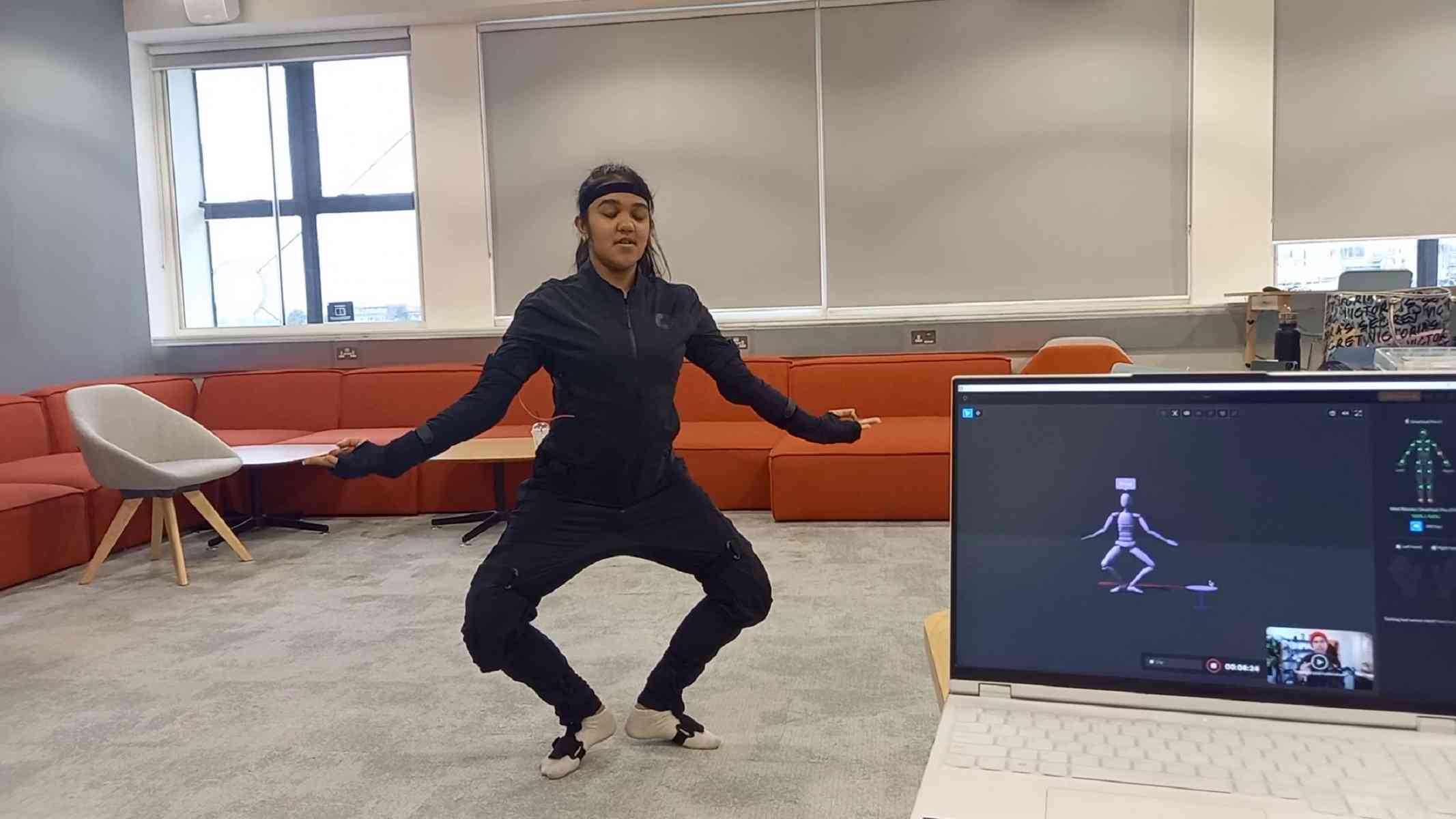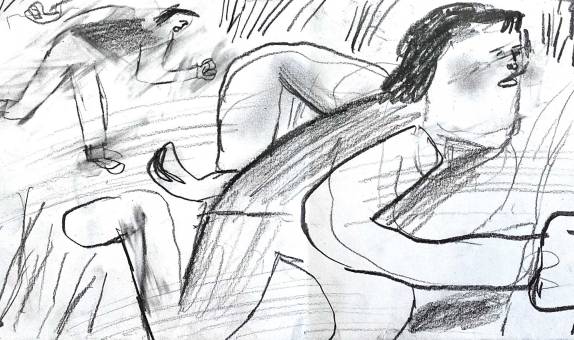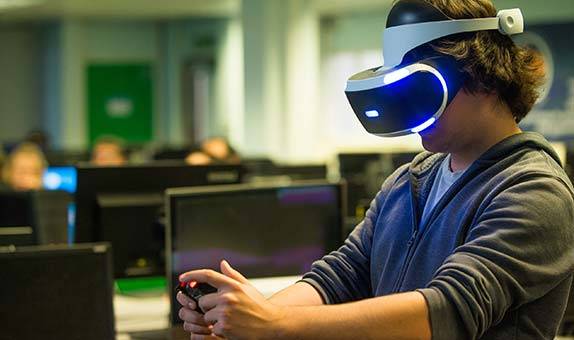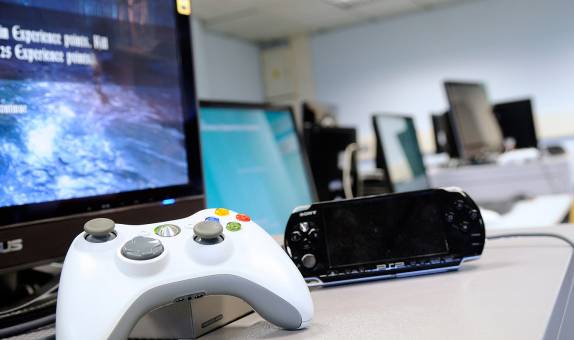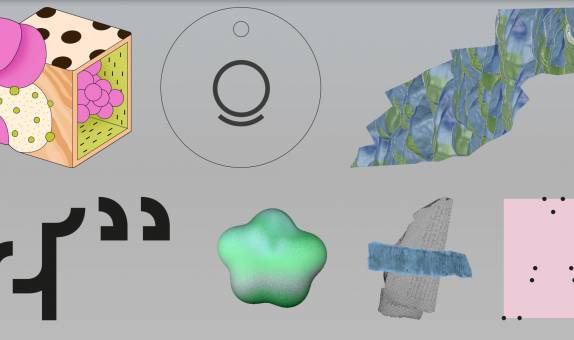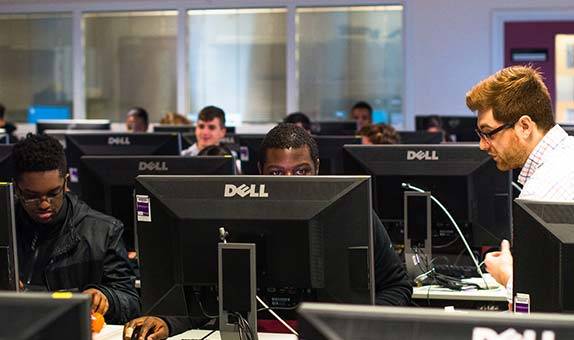Computer Animation MA
Why choose this course?
Join a flourishing course that equips students with a robust portfolio with which to enter the creative industries.
Learn how to apply clean modelling practices, UV mapping, shading, texturing, rigging, animation, lighting, rendering and compositing techniques to create 3D works of art in fast-paced, project-focused modules.
Industry-popular production tools, a broad catalogue of internal tutorials and workshops, project briefs and deadlines, and problem-solving challenges and exercises to enhance communication skills will help prepare you for your future career.
Collaborate in a studio environment as part of a team with others from other our digital media courses, such as games design and games programming students.
| Mode | Duration | Start date |
|---|---|---|
| Full time | 1 year | September 2024 |
| Full time | 1 year |
January 2025 September 2025 |
| Full time | 2 years including professional placement | September 2024 |
| Full time | 2 years including professional placement |
January 2025 September 2025 |
| Part time | 2 years | September 2024 |
| Part time | 2 years |
January 2025 September 2025 |
| Main Location | Penrhyn Road |
Reasons to choose Kingston University
- Kingston University is an active member of The Independent Game Developers' Association (TIGA) and the British Interactive Media Association (BIMA).
- Access to the latest industry popular software, such as Autodesk Maya & Mudbox, Arnold, Maxon One (including Zbrush), Nuke, Mari, Adobe Suite and Substance 3D, and Animbot.
- Take your work to the next level with high-spec workstations, brand-new Wacom Cintiq Pro 24" HD and XP-Pen Artist 24 Pro graphics displays. Students have access to our digital media studio, motion capture suite and state-of-the-art kit including Rokoko Wireless MoCap suits.
Student Work: Student Showreel 2023
View some of our students' work from Computer Animation MA at Kingston University, by watching the 2023 showreel.
Student work 2022
To see more of our students' work, view the 2022 showreel from Computer Animation MA students.
Student work 2021
To see the consistent quality of our student's work on the Computer Animation MA, view the 2021 showreel:
What you will study
3D animation: You will learn about the principles of animation, body mechanics, character performance and scene setup. You will study fundamental concepts applying them to practical workflows to create believable and appealing character animation. You can join in on motion capture sessions with our Rokoko Wireless Mocap kit.
Digital sculpting and 3D modelling: You will explore a range of concepts, techniques, and tools for building hard-surface models and creating characters. These disciplines will be informed by underlying design concepts, as well as by reference collection, and an appreciation of anatomy and visual narrative.
UV mapping, shading and texturing: You will learn the inner workings of producing complex shading networks and creating photo-real surfaces with multi-layered, PBR practices.
Character rigging: Bring your character to life with the technical skill sets and tools of 3D rigging.
Lighting and rendering: Capture your 3D creations in the best light, conveying story and mood, by applying cinematic lighting. You will learn the tricks of the trade to balance render speed and quality for producing eye-catching renders.
Compositing: You will be able to seamlessly integrate your CGI assets into live action footage, and maximise post-production flexibility, by learning 2D and 3D match-moving, colour grading, advanced rendering and compositing techniques, along with other post-production methods.
You will also work as part of a team, comprised of students from different media disciplines, undertaking simulated client briefs that have previously included augmented reality children's books, driverless car interfaces, virtual fashion shows, and interactive transparent displays for museum exhibitions. You will learn how to present yourself to potential employers through your professional presence and portfolio.
In every module, you will be expected to grow through active participation in formative animation exercises in and out of the classroom.
Modules
Core modules
Digital Studio Practice
30 credits
You will work with a multidisciplinary group of students as appropriate for your course (User Experience Design MSc, Game Development (Design) MA, Game Development (Programming) MSc and Computer Animation MA); involved with the digital media production process in response to a project brief developed in consultation with the industry panel and/or research staff. Projects concern contemporary platforms, such as iPhone, Android, Windows, Playstation, Xbox and Next Generation controllers and innovative input devices. You also develop a professional profile (online CV/portfolio) fitting for your role and intended destination which you maintain throughout the course.
- Coursework: report, prototype, and presentation (group and individual)
- Schedule: allow one weekday per week in the first semester
- Staff: course staff
Character Animation for Film and Games
30 credits
Students will benefit from having some prior experience with animation concepts, 2D and/or 3D animation practice. This module will enable them to develop their 3D animation skills further in creating dynamic and appealing animation for application in both film/TV and games production. Fundamentals and theory, such as the 12 Principles of Animation and study of reference, will underpin the development of a portfolio featuring body mechanics and character performance animation. Students will also learn basic techniques in rigging, such as parenting, constraints, IK solvers, utility nodes, set-driven keys, etc. in order to animate models.
On completion of the module, students will have the ability to animate assets for different applications (film, television, computer games).
This is a practical module where the majority of students' time is spent working with 3D software. Similarly, the assessment is practically based.
Digital Media Final Project
60 credits
The Digital Media Final Project, as a capstone project, consolidates the knowledge gained in earlier modules and is informed and supported by prior learning.
You will interpret the coursework into a practical solution and demonstrate skills in defining, analysing and developing a substantial solution to an individually defined design related problem. You will utilise an advanced understanding of contemporary digital media practice. The research and documentation of the project is an integral part of the submission; reflecting on the process, as well as the critical analysis and methodology of the research itself. The research will be conceptually integrated within the practical work. Individual project topics are expected to be wide ranging and provide the opportunity to fully investigate a practical situation, underpinned by a critical report on the work produced. Topics must allow the opportunity to position work with respect to business, social and cultural goals and identify and apply appropriate technology as a means of delivery.
On successful completion of the module, you will be able to:
- Critically apply theoretical knowledge of design and evaluate contemporary discourse on the subject.
- Demonstrate the application of design research methods in formulating concepts and ideas.
- Originate design propositions through the application of appropriate design ideologies, research principles, methods, materials and technology, forms, means, actions or interventions.
- Engage in the critical reflection of own work and in peer review related to the development and production of the major project, employing skills of evaluation, contextualisation and communication.
- Disseminate the research process and outcomes of the final project with appropriate currency and consideration of audience.
3D Creation Pipeline for Film and Games
30 credits
Students will benefit from having some prior experience with 3D asset creation. This module will enable them to develop their 3D skills further in creating production pipeline friendly assets, e.g. hard-surface vs. organic modelling, UV mapping, digital sculpting, and producing both stylised and photo-realistic materials and textures. Students will also learn lighting tools and methods, as well as advanced rendering techniques, to showcase their assets to industry expectations.
On completion of the module, students will have the ability to model and texture assets for different applications (film, television, computer games).
This is a practical module where the majority of students' time is spent working with 3D software. Similarly, the assessment is practically based.
Perfecting the Look
30 credits
This module builds on prior competency in using 3D modelling and animation software. It develops your 3D skills further and enables you, by guided self-study, to develop specialisms in areas that affect the look of a scene. That could be a photo realistic look, or a stylised look that aims to promote an emotional response from the viewer. Content will include rendering techniques, illumination techniques and the combination of individual elements by means of compositing.
On successful completion of the module, you will be able to:
- Make assessments of the technical requirements of a shot, to achieve particular look.
- Successfully composite 3D assets into a live action scene, and composite together elements of a 3D rendered scene.
- Evaluate the correct techniques required to evoke a particular mood or emotion in a still or moving image.
Professional Placement
120 credits
The Professional Placement module is a core module if you're following a masters programme that incorporates an extended professional placement. It provides you with the opportunity to apply your knowledge and skills in an appropriate working environment, and develops and enhances key employability and subject specific skills in your chosen discipline. You may wish to use the placement experience as a platform for a major project or your future career.
It is your responsibility to find and secure a suitable placement opportunity; this should not normally involve more than two placements which must be completed over a minimum period of 10 months and within a maximum of 12 months. The placement must be approved by your Course Leader prior to commencement to ensure its suitability. You will have access to the standard placement preparation activities offered by the Student Engagement and Enhancement (SEE) group.
Read more about the postgraduate work placement scheme.
Work placement scheme
Many postgraduate courses at Kingston University allow students to take the option of a 12-month work placement as part of their course. The responsibility for finding the work placement is with the student; we cannot guarantee the placement, just the opportunity to undertake it. You may find securing a professional placement difficult as they are highly competitive and challenging, but they are also incredibly rewarding. It is very important to prepare and apply yourself if this is the route you wish to take. Employers look for great written and oral communication skills and an excellent CV/portfolio. As the work placement is an assessed part of the course, it is covered by a student's Student Route visa.
For a student to go on placement they are required to pass every module first time with no reassessments. It is the responsibility of individual students to find a suitable paid placement. Students will be supported by our dedicated placement team in securing this opportunity.
Find out more about the postgraduate work placement scheme.
What our students say
Entry requirements
Teaching and assessment
Who teaches this course?
Digital Media Kingston
This course is delivered by Digital Media Kingston.
Digital Media Kingston (DMK) is an interdisciplinary, collaborative project between the School of Computer Science and Mathematics, and School of Design at Kingston University. Its mission is to bring together creative expression, theoretical analysis, scientific rigour and technological innovation to underpin innovation and excellence in the computational arts.
The teaching element of the DMK project delivers a suite of four related courses: Computer Animation MA, Games Development (Design) MA, User Experience Design MSc, and Games Development (Programming) MSc. You will share some taught modules with students taking these digital media courses.
Postgraduate students may run or assist in lab sessions and may also contribute to the teaching of seminars under the supervision of the module leader.
If you have any questions regarding the course, please contact the Course Leader, Mr Richard Cunningham, at r.cunningham@kingston.ac.uk.
Our modern teaching environment
The technical resources that are available to students on this suite of courses include:
Facilities
Fees for this course
Additional costs
Depending on the programme of study, there may be extra costs that are not covered by tuition fees which students will need to consider when planning their studies. Tuition fees cover the cost of your teaching, assessment and operating University facilities such as the library, access to shared IT equipment and other support services. Accommodation and living costs are not included in our fees. Where a course has additional expenses, we make every effort to highlight them. These may include optional field trips, materials (e.g. art, design, engineering), security checks such as DBS, uniforms, specialist clothing or professional memberships.
BAFTA UK Scholarship Programme
Applicants to Computer Animation MA can apply for the BAFTA UK Scholarship Programme, which is open to British citizens in need of financial assistance. Each successful BAFTA Scholar receives up to £12,000 towards their annual course fees, as well as mentoring support from a BAFTA member, and free access to BAFTA events around the UK.
In addition, three successful applicants will be awarded a Prince William Scholarship in Film, Games and Television, supported by BAFTA and Warner Bros., including a funded work placement within the Warner Bros. group of companies and other benefits.
What this course offers you
Computer Animation MA is part of the Digital Media Kingston suite of courses, providing you with a unique range of creative and technical skills.
- Input from industry practitioners and experts will add a valuable dimension to your studies.
- Industry guest speakers will share experience, knowledge, and insights.
- You will have access to state-of-the-art equipment and resources, such as Rokoko wireless motion capture suits (with gloves and headgear), 24-inch Wacom Cintiq Pro, XP-Pen Artist 24 Pro graphics displays, various cameras, lenses, tripods and lighting equipment, sound recording equipment, 360 cameras for creating HDR image-based lighting, Wacom Intuos graphics tablets – all available to our students.
- You will have access to first-class technical facilities, such as our Digital Media Studio (with blue and green screen), Motion-Capture Suite, high-spec workstations, and our Centre for Augmented and Virtual Environments (CAVE), where students can create VR apps with a number of Sony PlayStation developer kits. Students will be able to develop for this platform under an academic development agreement with Sony.
- The Final Project module gives you the creative freedom to pursue your preferred area of specialisation, or particular interest, and produce a substantial personal piece for your growing portfolio, under the supervision of our knowledgeable team.
Software includes:
- Maya, MotionBuilder, 3ds Max, and Mudbox
- Maxom One: Zbrush, Cinema 4D, Redshift
- Arnold Renderer
- Substance 3D: Painter, Designer, Sampler and Stager
- Marmoset Toolbag
- Nuke, Mari, and Modo
- Adobe Creative Suite
- Unreal Engine
- Unity
- Apple Final Cut Pro
- Blender
- Animbot
Staff will be drawn from across the University, including from Kingston School of Art and the School of Computer Science and Mathematics.
Where this course will take you
The technical and creative skills provided by this Computer Animation course are applicable in areas related mainly to the movie and games industry. Furthermore, advertisement, 3D printing, architectural design and web-based application are areas that require skills and knowledge on modelling, texturing, rigging, animation, and compositing.
Graduates have gone on to secure roles within film and games companies, such as Industrial Light and Magic, MPC, Rebellion, Relish, Kuato Studios and Ballistic Moo, as well as in advertising, 3D printing, VR medical training and architectural design.
What our students say
Read about why our students chose Kingston, what they gained from studying here, and how it has helped them in their careers.
How we work with industry partners
Digital Media Kingston courses have been developed in consultation with an industry advisory board, which so far includes members of Sony Computer Entertainment Europe, DreamWorks, the BFi, Alloy, The Other Media, Sunrise Software, Abelton Live, Tonic, Active Ingredient.
Some work placements, live projects and other opportunities will be available at the discretion of the industry panel for students on this course.
Course changes and regulations
The information on this page reflects the currently intended course structure and module details. To improve your student experience and the quality of your degree, we may review and change the material information of this course. Course changes explained.
Programme Specifications for the course are published ahead of each academic year.
Regulations governing this course can be found on our website.
